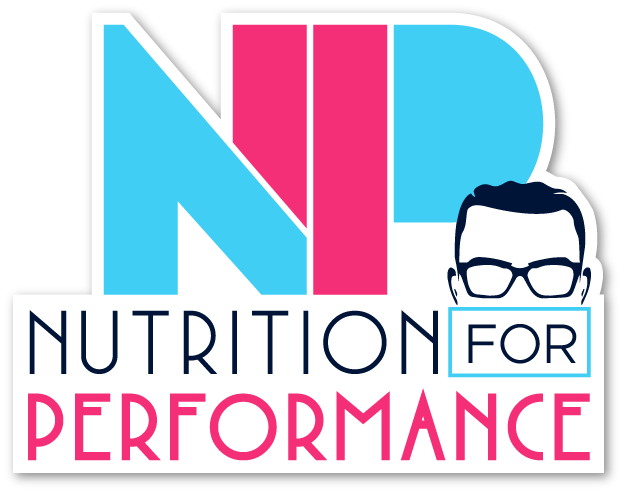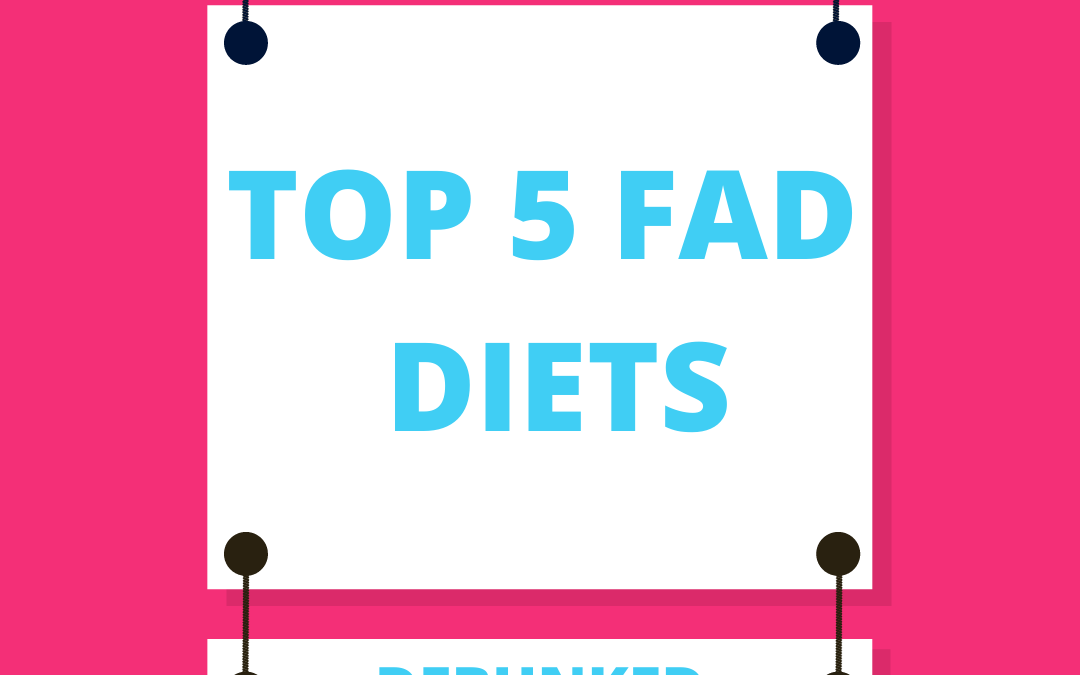Over the years, many diets have claimed to be the “end-all-be-all” for your weight-loss journey. You’ll “get slim quick,” “kick your baby fat fast,” or “get ripped without hitting the gym.” The truth is, most of the diets are a sham. Unfortunately, many people get caught up in these diets. They DO make you lose weight in the short run. They just don’t always align with your long-term health. You’re almost always guaranteed to gain the weight you lost back, if not more.
Why? Because these diets aren’t sustainable. They prioritize fast results over long-term health.
No one diet fits all people. So, many people try a fad diet out, see progress for a while, and then fizzle out over the long haul.
We have to get the right information about the impacts of a new diet before committing. I suggest reaching out to a nutritionist or dietitian to help you personalize your eating habits to fit your goals. I also recommend avoiding trendy diets. Here are some of the main ones I hear about from my clients, and my honest, professional opinion of them.
1. Plant-Based/Vegetarian Diet
Plant-based and vegetarian diets have a high number of adherents. Some adopt them because of religion, food sensitivities, weight loss, or something moral like environmental impact. These diets also have a solid reputation for positive health (and environmental) impact. However, that doesn’t mean it’s for everyone.
There are also many reasons not to adopt a plant-based diet. If you don’t have a well-balanced vegan diet, it can lead to anemia, deficiencies in B12, and calcium. Additionally, many vegans consume too many carbs. All this to say, “being vegan” doesn’t automatically mean “being healthy.” Even a plant-based diet can be unhealthy.
You also need to assess your goals. Many vegans don’t consume enough protein, which means you can’t build muscle. While you may be losing weight, it’s going to be harder to convert it to muscle.
Overall, consider your goals and personal needs before adopting a diet because it seems “cool.” You have to find what’s best for you and what will serve your body the best long term!
2. Keto Diet
The keto diet is likely the most popular “quick fix” diet people resort to… and one of the most harmful. Don’t get me wrong, it will help you lose weight quickly. Many bodybuilders use it close to their competitions to ensure they’re as lean as possible before stepping on stage.
However, keto will never work for you long-term. Even the aforementioned bodybuilders get off of it and regain weight after their shows. This will also happen to you, whether you want it or not. Why? Over time, keto damages your metabolism, causes nutrient deficiencies, stresses your kidneys, and messes with your blood sugar. It even has a disease named after it, the “keto flu.”
The efficacy of keto comes from shocking your body with fewer than 50 grams of carbs a day. Your body depletes its stored carbs and switches to ketones. This will give you flu-like symptoms. In a way, your body revolts because it was meant to consistently use carbs for energy.
And eventually, the body wins. Keto may give you a short period of quick weight loss, but afterward, almost everyone returns to old eating habits, regaining weight just as fast as they lost it. To reach and maintain your goals, you need incremental life changes that you can sustain for years, not weeks.
3. Juice Cleansing
In theory, juice cleansing sounds like a great idea—you flush your body of toxins, you boost vitamins and nutrients in your body, and you can ingest as much as you want to without gaining weight. However, it also comes with its own list of health concerns.
Most notably, it strips your body of many of the vital nutrients it needs to survive. Juices don’t have protein, healthy fats, and lack many vitamins. This causes headaches, fatigue, and even nausea. When used long-term, juice diets degrade your muscles and bones.
While this might be a tempting option to lose weight quickly, it isn’t a healthy long-term option. Not only is rapid weight-loss unhealthy, but it’s temporary. When you return to a normal diet, your normal weight will persist. When you swing the pendulum in one direction, it will come back just as hard in the other direction.
Juice cleanses have their time and place when paired with consistent healthy eating and proper regulation, but are not a feasible option for long-term health.
4. Intermittent Fasting
Intermittent fasting has gained popularity in recent years, but not everyone understands the side effects. While studies show this diet is connected to weight-loss, decreased risk factors of heart disease, lower blood pressure, and improved blood sugar, it also has a dark side.
While it can be safe and effective for some people, it isn’t for everyone. Negative impacts include headaches, lightheadedness, digestive issues, mood swings, fatigue, and bad breath. This is just the short-term impacts. It can also negatively impact your metabolism, which will cause you to gain weight back later.
Intermittent fasting can be done in a healthy and sustainable way for some. But individuals who are still growing, practice a lot of physical activity, are pregnant, or have an immunodeficiency should avoid this diet.
Like all diets, this way of eating has its time and place, but it certainly won’t fulfill a long-term goal of optimal fitness, health, and wellness.
5. Atkins Diet
The Atkins diet is the most popular low-carb diet in the world. It’s known for producing “rapid weight loss without hunger.” Controlled studies have shown this is an effective way to lose weight. However, like all diets, it comes with a cost.
This diet radically restricts you from eating many of your body’s necessary sources of nutrients. The lack of carbs and sugars, restricted proteins and fats, along with limited vegetable intake, won’t fulfill your dietary needs. Thus, it gives you weight loss at the expense of your holistic health.
This diet also causes dizziness, headaches, nausea, constipation, and can negatively impact your blood sugar. With this in mind, it probably isn’t for everyone.
When considering making any major diet changes, consulting a dietitian is always a good idea. There are many elements to these diets that CAN be beneficial to your health journey, but that doesn’t mean any diet will work for you.
It’s important to remember that a diet isn’t a lifestyle. Short-term changes won’t generate long-term results. It’s about finding a routine and way of eating that works best for you.
If you’re ready to stop experimenting with fad diets and get the results you love, you might benefit from working with our nutritional experts. Check us out here.
Further reading: Is Your Fear of Fats and Carbs Keeping You From Reaching Your Fitness Goals?: Four Limiting Beliefs About Diet



